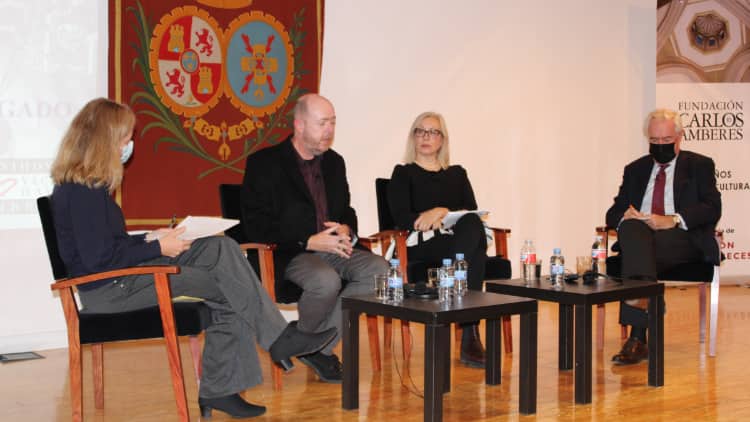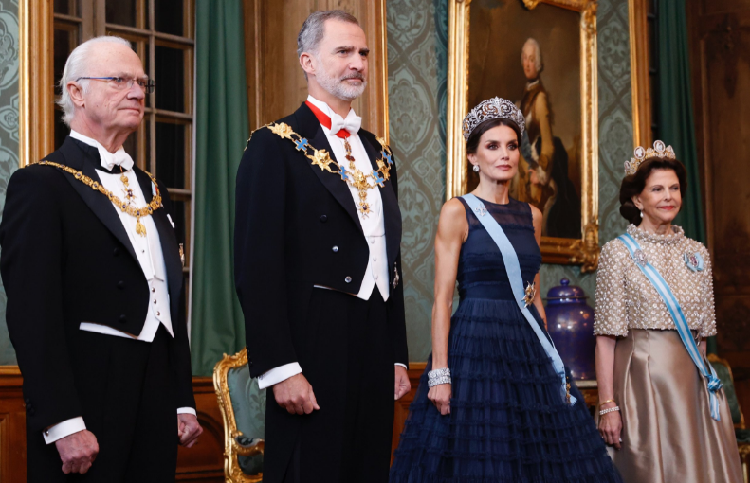Marta Martínez
Disinformation circulating profusely on social networks poses a serious threat to European identity, according to a conference on the legacy of Vaclav Havel, ten years after the death of the former president of the Czech Republic and a great figure in the fight against communism in Czechoslovakia.
The conference, organised by the Carlos de Amberes Foundation in collaboration with the Elcano Royal Institute and the Czech Embassy in Madrid, included a first session with the participation of Michael Zantovský, author of the biographical book ‘Havel. Una vida’; and José Ignacio Torreblanca, director of the European Council on Foreign Relations, in a debate moderated by the director of the Felipe González Foundation, Rocío Martínez-Sampere.
Previously, Miguel Ángel Aguilar, President of the Carlos de Amberes Foundation, introduced Václav Havel as an important figure committed to the recovery of his country’s freedoms, and pointed out the importance not only of achieving freedoms, but also of preserving them.
The debate focused on the future of European democracy in the context of globalisation. Michael Zantovský highlighted the contrast between the optimism of the early days of democracy and the current confusion and lack of confidence in the European project, in which -he said- Havel believed faithfully, coupled with the increasingly questioned European identity.
At this point, José Ignacio Torreblanca pointed out that the dissociation produced between European identity and national identity can be seen as the root of some of the problems currently suffered by democracies.
One of the main culprits of this contradiction, according to the author of ‘Havel. A Life’, is the disinformation – fake news – that circulates anonymously throughout the European Union, which he believes makes it impossible to maintain the concept of European identity.
The three speakers also agreed on the question of leadership. According to Torreblanca, the current problem is that today’s leaders are followers of public opinion, falling into their own insecurity and looking to those they are trying to lead for proposals for their own leadership. Michael Zantovský echoed this idea, but disagreed that leaders’ lack of charisma is the main problem, blaming instead a lack of vision.
The second session addressed the role of Václav Havel in democratic change. Martin C. Putna, historian and protagonist of the student movement in November 1989 against the communist regime, pointed out that the figure of Havel is currently a matter of division in Czech society: between those who faithfully follow the ideals of the former president and those who call for a new figure, and not just a symbol of the past.
Mira Milosevich-Juaristi, senior researcher at the Elcano Royal Institute, added that although Havel’s figure now divides people in the Czech Republic, his values are universal and still present.
The researcher from the Complutense University of Madrid, Sarah Lemmen, for her part, highlighted Václav Havel’s moral primacy over politics, underlining that he was convinced that strong relations are necessary to forge the path towards democracy and peace, something he aimed for during his term of office.
On this point, Milosevich-Juaristi commented that, while a sense of dissent marked Havel’s life during the communist regime, what marked his presidency was his moral primacy, and that, thanks to his universal principles, he said, Havel remains a legend during his lifetime.







